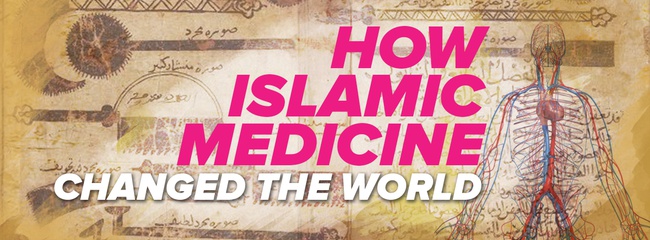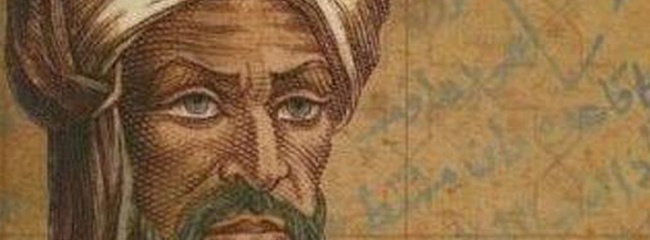How Islamic Knowledge Changed the World
Did you know a man who couldn’t read and write was voted the most influential person in history? EVER!
Crazy, right? But absolutely true.
That man, was the Prophet Muhammad - who through the Qur’an was able to take a group of ancient tribal Arabs who were farmers and goat and camel herders and inspire them to greatness where they changed the world and now 1.8 BILLION people today follow their example.
But what was the key to this massive transformation? How did they make so much impact, so quickly?
It was down to one key word - KNOWLEDGE.
No other religion stresses as much on seeking knowledge as Islam. But what does this mean? Why does it stress on it so much, and what does this mean for the average Muslim, today?
This short video will take a look at exactly that, and you’ll learn how the Muslim attitude towards knowledge made it the greatest civilisation in the world and has shaped the world as we know it, today.
Islam stresses on the importance of seeking knowledge
It is said in Islam - ‘to seek knowledge is compulsory on every believer’.
Given this obligation to seek beneficial knowledge, this is how the early Muslim scientists, architects, and engineers saw their own work: they sought and implemented knowledge as a means of worshipping Allah.
They recognised that the more they learned about the world, the better they would understand and impact their deen - and vice versa.
It is this unquenchable thirst for knowledge that led to world exploration, advances in science, art and technology, and free, empowered communities.
The Qur’an is THE ultimate book of knowledge for us, until the End of time and is devoted to intellect, knowledge, learning, logic, to think.
The first verses of the Quran to be revealed began with the word: “Read.”
The Qur’an mentions the word “knowledge” in various forms 854 times and that many times human beings are asked to think, consider, reason.
Allah has said in the Qu’ran, that he has sent down the Book so that it may explain to us ALL things - that is all things until the end of time
Other examples of knowledge mentioned from the Qur’an:
And say, Lord increase my knowledge. (20:114)
And He has subjected to you, as from Him, all that is in the heavens and on earth: behold in that are Signs indeed for those who reflect. (45: 13)
"And they will say: "Had we but listened or used our intelligence, we would not have been among the dwellers of the blazing Fire!" [67:10]
Even the basic tenets - i.e. to have faith (Iman) must be based on knowledge
"Know! That there is no God but Allah!" [47:19]
Islam is a religion that is in harmony with a healthily working intellect. There is no place for blind belief/faith in Islam, for blind belief is not Iman.
Often extremism is borne out of a lack of understanding and knowledge.
"Ignorance leads to fear, fear leads to hate, and hate leads to violence. This is the equation." - Ibn Rushd
The Prophet Muhammad (PBUH) emphasised the importance of acquiring knowledge in many ways:
He looked at knowledge over time: "Seek knowledge from the cradle to the grave."
He looked at knowledge by location: "Seek knowledge even if it is far as China."
He did not differentiate by gender, by age: ”Seeking of knowledge is a duty of every Muslim.”
He also didn’t differentiate by faith: ”Wisdom is the lost property of the believer, he should take it even if finds it in the mouth of a non-Muslim.”
Adam (AS) was taught the names of ALL things - and it was this knowledge that distinguished him from the angels
Humanity has inherited from Adam the ability to acquire knowledge. We are able to learn about the world around us and the things that it contains. We have the power of language and the ability to reason.
“But Allah commanded the angels to prostrate before Adam, and He explained to them that the way in which Adam enjoyed superiority to them was because: “He taught Adam the names of all things.” [2:31]
“Then Allah commanded the angels to inform the things of their names. When they were unable to do so, they replied: “Glory be to You! We possess no knowledge save what You have taught us.” [2:32]
Gaining knowledge is a lifelong pursuit - and it doesn’t mean just Islamic knowledge!
Many of the greatest scientific thinkers in Islam were religious scholars which suggests they would learn the sciences in conjunction with learning and understanding their religion. What made them ‘great was their approach to knowledge which allowed them to excel! Let’s look at this further:
It was a lifelong pursuit:
“Rather than being self-indulgent, man should pursue knowledge, utilise his intellect and apply justice in his life. This is what our merciful Creator wants. The One to whom we pray for reward and whose punishment we fear." Al- Razi
They believed in the infinte potential of every human being:
Knowledge exists potentially in the human soul. Like the seed in the soil, by learning, the potential becomes actual. Al Ghazali
They would take knowledge from sources other than Islam and appreciate the other sciences:
"We ought not to be embarrassed of appreciating the truth and of obtaining it wherever it comes from, even if it comes from races distant and nations different from us. Nothing should be dearer to the seeker of truth than the truth itself, and there is no deterioration of the truth, nor belittling either of one who speaks it or conveys it" Al-Kindi
"Geometry enlightens the intellect and sets one's mind right. All of its proofs are very clear and orderly. It is hardly possible for errors to enter into geometrical reasoning, because it is well arranged and orderly. Thus, the mind that constantly applies itself to geometry is not likely to fall into error. In this convenient way, the person who knows geometry acquires intelligence." - Ibn Khaldun
They pursued knowledge fiercely:
"There are no incurable diseases — only the lack of will. There are no worthless herbs — only the lack of knowledge." - Ibn Sina
And they never forgot the real purpose:
"Knowledge is not what is memorised. Knowledge is what benefits." - Imam Al-Shafi‘i
As you can see, Islam heavily stresses on the importance of gaining knowledge - which led them on to amazing achievements in science, trade, engineering and exploration.
Great Islamic thinkers demonstrated how faith and philosophy, religion and science, revelation and reason didn’t just merely co-exist, but thrived together in harmony. And it was this deep attitude towards knowledge that elevated them to great things.
“In Islam there is no division between sacred and profane knowledge, and consequently, the pursuit of physical science is an act of ibadah.
It is true that the highest level of knowledge is the knowledge on Din (religion), but the process of knowledge is such that one cannot understand the highest level of knowledge unless one builds up the lower.” - Maulana Fazal-Rahman Ansari
About
KNOW Team
We believe that everyone has something to learn, and everyone has something to teach. Our vision is to create a global education platform which empowers millions to fulfill their purpose and potential.





